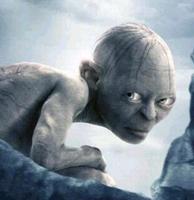Blowing In The Wind
 Yesterday I began the day googling around the Net, let my mind lead me to various places, little trips down memory lane. I guess this is my way of relaxing, of exercising my creative muscles, or letting the little "wild child" out of its' cage. Oddly enough, I ended the day the way I started, with Bob Dylan, thanks to Martin Scorcese and the guy who wrote the article that reminded me that his documentary was showing on PBS.
Yesterday I began the day googling around the Net, let my mind lead me to various places, little trips down memory lane. I guess this is my way of relaxing, of exercising my creative muscles, or letting the little "wild child" out of its' cage. Oddly enough, I ended the day the way I started, with Bob Dylan, thanks to Martin Scorcese and the guy who wrote the article that reminded me that his documentary was showing on PBS.I watched the last half of it last night. Suddenly it seems I'm being drawn back to my musical roots. Bob Dylan, John Lennon, Donovan Leitch, Johnny Cash keep popping up and reminding me of the music I listened to when I was young.
When I was in school, we used to have a music class where we would sing songs. A lot of the songs were patriotic, like "America the Beautiful" and some were just fun to sing, like "The Happy Wanderer." We sang a lot of songs by classic American songwriters like Stephen Foster's "Oh Susanna." This brings me to a sad truth about music nowadays, the fact that songwriters are no longer recognized. But that's another essay altogether. Being a born music lover, my education was enriched with singer/songwriters such as Woody Guthrie whose song "This Land is Your Land" had become an American standard.
I fell in love with songwriters at an early age…Woody Guthrie, Stephen Foster…a quickly recognized that their name at the top of the sheet music meant something. A certain quality, a certain rhythm that spoke to me. Later I was introduced to Bob Dylan and through out the years "Blowing in the Wind" became a popular folk song. Still is. I used to wonder if my children would sing "Blowing in the Wind" when they were studying American music. Or would these old classic songs become like the words in Bob Dylan's song:
I've never known that much about Bob Dylan, and apparently as evidenced by comments from Joan Baez, neither has anyone else. I sat there watching his interviews, watching his face with that enigmatic expression that said "who are all these people? And what do they want from me?" and I came to a conclusion:How many years must a mountain exist
Before it is washed to the sea
He was a poet, a singer/songwriter and that's all he wanted to be. He fell into the money and fame and all that other crap was unimportant to him. They made him a political spokesman, but he wanted no part of that. He just wanted to be Bob Dylan, a man that was in love with his own words and wanted the world to hear them. He didn't want to change the world or send a deep social message to the masses. "Instead of touching him on the shoulder, I think God kicked him in the ass." That was producer Bob Johnston's explanation for Dylan's odd behavior.
He couldn't understand why people were so mad at him for going electric at his concerts. During his 1966 British tour, the behavior of the crown was so bad Al Kooper dropped out of the band when he saw the next stop on the itinerary was Dallas, Texas. He said after they shot Kennedy "if they didn't like that guy, imagine what they would do to us." He said he didn't want to become an analogy of John Connelly, the guy riding in the car with Kennedy when he was shot.
The look on his face and his self-conscious manner during the interviews reminded me of Johnny Depp or Joaquin Phoenix, both masters in their own right in dodging questions and messing with journalists heads. I loved the part where the young British journalist was asking him about the "subtle meanings" in his lyrics. Obviously tired of questions such as this, he looked frustrated when he asked her to be more specific. "Subtle as compared to what?"
The girl replied, "I don't know. They say your lyrics are subtle." She burst into a fit of giggling.
"Who is 'they'? Who said that?" Bob says grinning.
"A movie magazine," the girl replies, laughing. Bob laughs with her and from then on, seems to be enjoying himself.
I was impressed with the fact that although he was bombarded with stupid questions about his lyrics from journalists who obviously knew nothing about music, even less about his music he kept his cool. At one point, he asked a man "why are you asking me these questions?" to which the man replied "because it's my job." They didn't even care who he was or what his music was about. They only cared about "Bob Dylan," whoever they thought that was. American protest singer? Pop celebrity icon? Left-wing dissident?
Toward the end of the tour, weary of the whole business, he remarked "I'm going to get a new Bob Dylan and see how he does."


